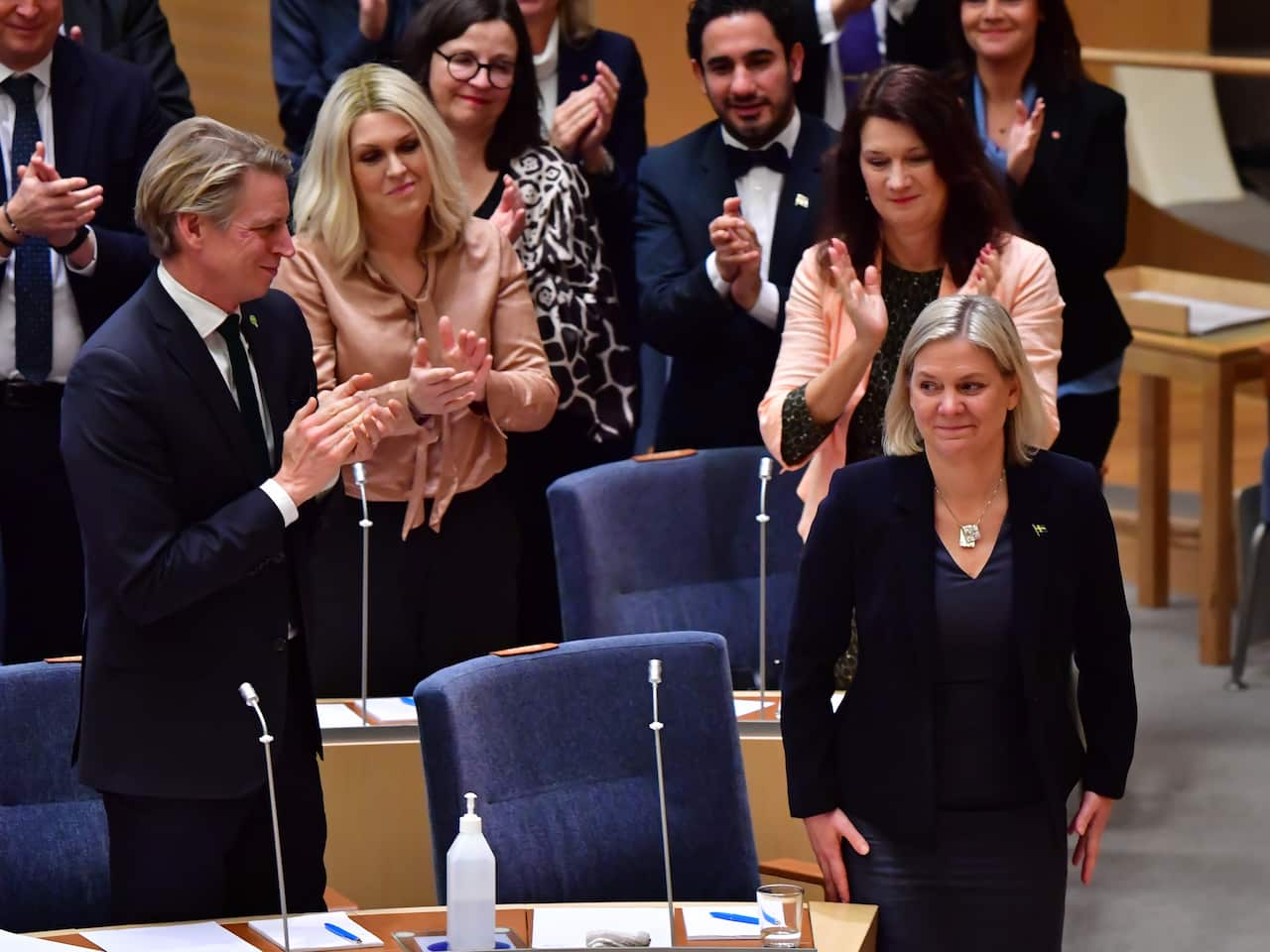Sweden's first female prime minister has been reappointed days after she quit amid political turmoil and jostling ahead of elections.
Politicians narrowly elected Magdalena Andersson premier for the second time in less than a week on Monday after she set out plans for a minority government made up of only her Social Democrats.
The former finance minister had won a similar vote on Wednesday but threw in the towel hours later after a junior coalition partner left the government over a lost budget vote.
Ms Andersson, whose party holds 100 seats of 349 in the parliament, told a press conference: "Like all minority governments, we will seek co-operation with other parties in parliament, and I see good opportunities to do so. "The Social Democrats have the biggest party group in parliament by a wide margin.
"The Social Democrats have the biggest party group in parliament by a wide margin.

Magdalena Andersson was given the role after a vote in the Swedish parliament Source: TT News Agency
"We also have a long tradition of co-operation with others and stand ready to do what is needed to lead Sweden forward."
Ulf Kristersson, leader of the right-wing opposition Moderate Party, described the incoming administration as a "nine-month caretaker government" and said it would not be able to achieve much in the run-up to elections due to take place next September.
Ms Andersson will have to lead one of Sweden's weakest governments in recent decades, and govern on a budget in part formulated by three opposition parties, including the anti-immigration Sweden Democrats, whose gains over the past decade lie at the heart of Sweden's political turmoil.
Parliament adopted budget amendments put forward by the opposition last week which heavily reshaped government spending plans.
The Social Democrats have been in power since 2014 supported by parties united by little else than their desire to keep the Sweden Democrats from influencing policy.
The centre-right opposition has struggled to gather enough votes to form a majority government and polls suggest there may be little shift in the political calculus in the next election.
Ms Andersson will face major challenges, including gang violence in the suburbs of major cities, a health service hit by the pandemic and a promised transition to a zero-emissions economy.
Share


